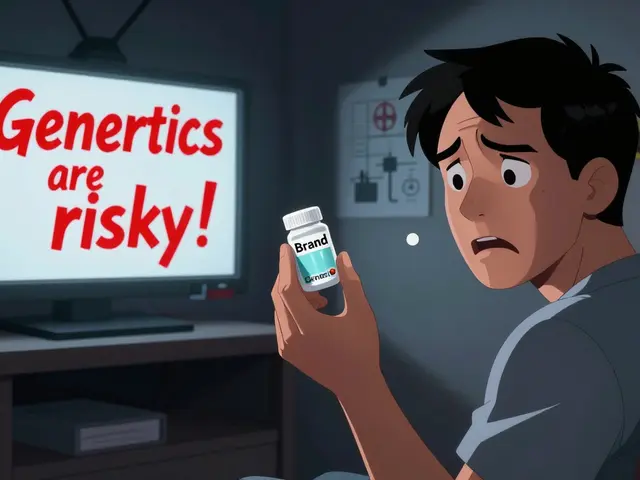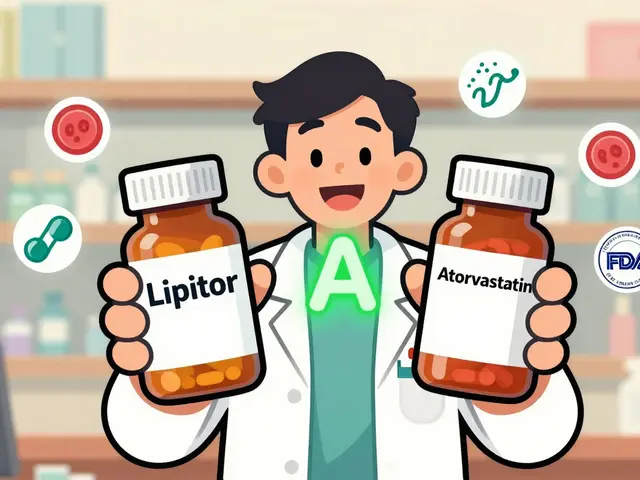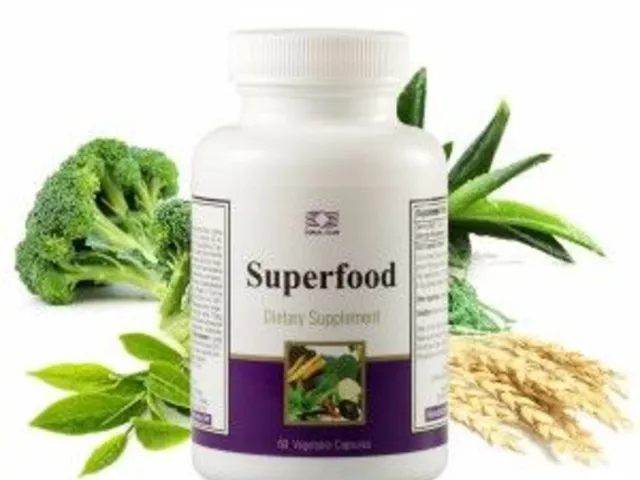Shark cartilage has been sold as a cure-all for decades-joint pain, cancer, you name it. The hard truth? Most claims don’t hold up when you read the trials, not the labels. If you’re here to figure out what’s real, what’s hype, and what to do next, you’re in the right place. You’ll get the science in plain English, quick rules you can use, and a clear way to decide whether this supplement deserves a place in your routine.
- TL;DR: Evidence for joint pain is mixed and small at best; cancer benefits haven’t shown up in good trials.
- How it might work: chondroitin and collagen fragments may help a little with symptoms, but anti-cancer proteins get digested.
- Safety: possible bleeding risk with warfarin, high calcium load, contaminants, and seafood allergies.
- If you try it: time-box a 12-week trial, track pain scores, stop if no benefit.
- Eco note: many shark species are threatened; consider non-shark alternatives.
What jobs are you trying to get done after clicking this headline? Likely these:
- Know if shark cartilage actually works for joints or cancer.
- Understand how it’s supposed to work in the body (and if that’s realistic).
- Decide whether to try it, and how to do that safely and ethically.
- Avoid bad products, sketchy claims, and wasted money.
- See better options if you’re managing osteoarthritis or going through cancer care.
What it is, why it was hyped, and what biology says
Shark cartilage is just what it sounds like-the connective tissue that gives a shark’s skeleton its structure. Manufacturers dry it, mill it, and put it into capsules or powders. It’s mostly collagen, glycosaminoglycans (like chondroitin sulfate), minerals (notably calcium), and small proteins.
Three main claims sit behind the marketing:
- Anti-angiogenesis for cancer: cartilage contains proteins that block new blood vessel growth. If tumors can’t grow vessels, they can’t expand.
- Joint support for osteoarthritis: chondroitin and collagen fragments may reduce inflammation and pain and help cartilage hold water.
- Immune balancing: vague “boost” or “modulate” claims with little high-quality human data.
Here’s the key biological filter: what survives your gut? Proteins that supposedly block blood vessels are broken down into amino acids in digestion. Oral absorption of intact anti-angiogenic proteins is unlikely at doses found in supplements. Chondroitin sulfate is partly absorbed, but bioavailability varies and the clinical impact tends to be small. The high calcium content doesn’t help joints; it just adds calcium (and sometimes too much).
This is why you see a pattern in the research. Cancer trials that banked on the anti-angiogenesis angle came up empty. Joint trials show modest, inconsistent symptom relief at best, similar to what we see with some non-shark chondroitin products.
If you take nothing else from this section: the basic biology doesn’t kill the idea that it could help joint symptoms for some people, but it makes the dramatic cancer claims very unlikely with oral doses.

Does it work? Evidence by condition (2025)
Quick scan of the evidence from the most relevant human studies and systematic reviews:
| Condition | Evidence quality | Key trials/reviews | Main outcome | Typical studied dose | Notes |
|---|---|---|---|---|---|
| Osteoarthritis (knee/hand) | Low to moderate | Cochrane Review (2015) on chondroitin; BMJ meta-analysis (2010) on glucosamine/chondroitin; later RCTs mixed | Small, inconsistent pain reduction; high-quality trials show little or no clinical benefit | Chondroitin 800-1,200 mg/day; shark cartilage products 3-6 g/day | Any benefit likely modest; try a time-limited trial and measure change |
| Cancer (various, incl. NSCLC) | Moderate (good RCTs) | Phase III trial of AE-941/Neovastat in NSCLC (J Clin Oncol, 2005); advanced solid tumor trials (Clin Cancer Res, 2007) | No survival or tumor response benefit vs placebo | Liquid AE-941 dosing; varies by protocol | Do not use as a cancer treatment; conflicts with evidence-based care |
| Psoriasis/skin | Very low | Small uncontrolled or pilot studies | Insufficient evidence | Varied | Use proven dermatology treatments instead |
| Age-related macular degeneration | Very low | No robust RCTs | No reliable benefit | N/A | Stick with AREDS-based regimens if indicated |
| General joint health/prevention | Very low | Extrapolated from OA data | No clear preventive effect | Varied | Exercise and weight management trump supplements |
Let’s unpack the two big ones-joints and cancer.
Osteoarthritis: The strongest human data sits with chondroitin sulfate (often from bovine or marine sources). A Cochrane Review in 2015 reported small pain improvements, but effects were inconsistent and smaller in higher-quality trials. A BMJ meta-analysis in 2010 pooled glucosamine and chondroitin studies and found no clinically important benefit for pain or joint space narrowing. Some later RCTs have reported benefits in subgroups, but when you zoom out, the average effect is modest at best. Trials specifically using shark cartilage are fewer and smaller; they don’t show a clear advantage over standard chondroitin, and some found no difference vs placebo.
What does that mean for you? If you’ve got knee or hand OA, a short trial can be reasonable if you’re not on medicines that interact. Expect any benefit to show up by 8-12 weeks. If nothing changes, move on to things that are proven to work: progressive strength training, weight loss if needed, topical NSAIDs, and activity pacing. Those get consistent support in clinical guidelines.
Cancer: This is the claim that made shark cartilage famous in the 1990s. Multiple randomized controlled trials shut the door. A phase III trial of AE-941 (Neovastat), an extract from shark cartilage, in non-small cell lung cancer found no survival benefit. Another Mayo Clinic-led trial in advanced solid tumors also reported no meaningful improvements compared with placebo. These were well-designed studies in respected journals (Journal of Clinical Oncology, 2005; Clinical Cancer Research, 2007). That’s why oncologists advise against it. It can also conflict with treatment plans, especially if it affects bleeding or interacts with medications.
If you’re going through cancer care, the most helpful supplements conversation to have with your care team is about nutrition, vitamin D if low, and avoiding anything that might interfere with chemo or targeted drugs. Shark cartilage isn’t on the helpful list.
How to test it properly for joint pain (if you still want to):
- Baseline today: rate your average knee/hand pain on a 0-10 scale and note key limits (e.g., stairs, grip).
- Pick one product with chondroitin that discloses source and dose (see checklist below). Aim for 800-1,200 mg/day chondroitin or 3-6 g/day of a shark cartilage product if you accept the risks.
- Give it 12 weeks. Keep your other routines stable (exercise, meds) so you can see the signal.
- Re-check your pain score and function (time to climb stairs, jar opening). If you don’t see at least a 1-2 point drop and better function, stop.
Pitfalls to avoid:
- Stacking too many changes at once-you won’t know what helped.
- Chasing higher doses to force a result-increases risk without better evidence.
- Relying on it for cancer-this costs time you can’t get back.

Safety, dosing, sustainability, and smart buying (Australia 2025)
Safety isn’t just “did it upset my stomach.” It includes bleeding risk, calcium load, contaminants, and environmental harm. Here’s the straight talk.
Known side effects and risks:
- Digestive issues: nausea, constipation, stomach upset are the most common.
- Bleeding risk: chondroitin can increase INR with warfarin and may add to bleeding risk with other anticoagulants or antiplatelets. Avoid around surgery unless your doctor says otherwise.
- High calcium: some shark cartilage powders are calcium-heavy. People with kidney disease or a history of kidney stones should be cautious.
- Allergy: avoid if you have seafood allergies.
- Contaminants: sharks can accumulate heavy metals and persistent pollutants. Quality varies widely.
- Pregnancy/breastfeeding: skip it-no reliable safety data.
Who should not use it without medical advice:
- People on warfarin or direct oral anticoagulants (e.g., apixaban, rivaroxaban).
- Anyone with bleeding disorders or upcoming surgery.
- People with kidney disease, hypercalcemia, or recurrent kidney stones.
- Pregnant or breastfeeding women, and children.
- Active cancer patients unless your oncology team explicitly approves (they usually won’t).
Dosing and timing:
- Common chondroitin dose: 800-1,200 mg/day (often split). If using a mixed product, check the actual chondroitin amount, not just “cartilage powder.”
- Shark cartilage powders/caps: often 3-6 g/day. There is no standard, and more isn’t better.
- Trial length: 8-12 weeks is fair for symptom change. If no improvement, stop.
Quality and label checks (Australia focus):
- Look for a TGA listing number (AUST L) on the label. This doesn’t prove it works, but it means it’s made under Australian quality standards and ingredient safety checks.
- Ask for batch testing for heavy metals and contaminants. Brands that do third-party testing usually say so.
- Ingredient clarity: the label should name the species, the amount of cartilage vs chondroitin sulfate, and the daily dose used in studies.
- Avoid proprietary blends that hide actual amounts.
- Be wary of disease claims (“treats cancer,” “rebuilds cartilage”). In Australia, that’s not allowed on listed medicines.
Sustainability and ethics:
- Shark populations are under pressure. Around one-third of shark and ray species are threatened, based on IUCN assessments updated in the past few years.
- Cartilage can be a by-product of fisheries, but supply chains are often opaque. Certifications like MSC or Friend of the Sea are better than nothing, but they’re rare for cartilage.
- Alternatives exist: bovine chondroitin (if you want chondroitin at all), non-animal joint strategies (exercise therapy, weight management), and topical NSAIDs.
Simple decision tree:
- If your goal is cancer treatment or prevention: do not use shark cartilage. Talk to your oncology team about evidence-based options.
- If your goal is osteoarthritis symptom relief and you’re not on blood thinners: consider a 12-week trial of a transparent, tested product. Track your pain. Stop if no benefit.
- If sustainability matters to you: pick non-shark options or focus on non-supplement strategies.
Shopping checklist you can use on your phone:
- TGA AUST L on label? If not, skip.
- Chondroitin dose clearly stated (800-1,200 mg/day) or specific cartilage grams (3-6 g/day)?
- Third-party testing mentioned? Batch/COA available?
- No disease claims like “cures cancer” or “rebuilds cartilage.”
- Source and species disclosed; sustainability info provided.
- Cost per 30 days reasonable? (Price doesn’t equal quality.)
Better-first options for osteoarthritis (evidence-backed):
- Exercise: progressive strength training and neuromuscular work. Consistently improves pain and function.
- Weight management: even 5-10% loss reduces knee load and pain.
- Topical NSAIDs: good pain relief with fewer systemic effects.
- Heat/cold, pacing, and supportive footwear or braces as needed.
- Discuss intra-articular options with your GP if symptoms are severe.
Citations for key claims (no links here, just the sources):
- Chondroitin for OA: Cochrane Review, 2015; BMJ meta-analysis on glucosamine/chondroitin, 2010.
- Shark cartilage in cancer: Journal of Clinical Oncology, 2005 (AE-941/Neovastat in NSCLC); Clinical Cancer Research, 2007 (advanced solid tumors).
Mini‑FAQ
- Does shark cartilage rebuild cartilage? No. There’s no solid human evidence of structural regrowth from oral supplements. At best, some people get small pain relief.
- Is it the same as marine collagen? Not quite. Marine collagen is often from fish skin/scales; cartilage products have more glycosaminoglycans like chondroitin and more calcium.
- How long until I feel anything? If it’s going to help symptoms, expect a signal by 8-12 weeks. No change by then? Stop.
- Can I take it with fish oil? Usually yes, but check with your GP if you’re on blood thinners, since both can affect bleeding risk.
- Is it safe for diabetes? It doesn’t reliably change glucose, but diabetes often comes with other meds and conditions-check with your GP.
- Why do some people swear by it? Placebo effect, natural pain fluctuation, and individual response all play a role. That’s why time‑boxed, measured trials matter.
Next steps
- If you have osteoarthritis and want to try it: pick a transparent, TGA‑listed product; set a 12‑week test with a pain score; stop if no improvement.
- If you’re on warfarin or have surgery coming up: avoid unless your doctor clears it.
- If you’re in cancer care: bring supplements to your oncology team before starting anything. Skip shark cartilage.
- If sustainability is a priority: focus on training, weight management, and topical meds; if you still want a supplement, look at non‑shark chondroitin or skip chondroitin altogether.
- If you’re unsure: book a quick chat with your GP or pharmacist and bring the label. They’ll spot red flags fast.
Troubleshooting different scenarios
- “I took it for 3 months and nothing changed.” Good-now you know. Stop and redirect effort to exercise and topical NSAIDs.
- “My knee felt a bit better, but I’m on a tight budget.” Switch to the proven basics (strength work, topical NSAIDs) and spend on coaching or good shoes instead.
- “It helped, but I’m worried about the environment.” Try a non‑shark chondroitin or pause supplements and double down on training and weight management.
- “I’m starting chemotherapy.” Park all nonessential supplements until your oncology team signs off.
- “I saw a product claiming it cures cancer.” Walk away. That claim is illegal and false.
If you remember one mental model, use this: strong claims need strong evidence. For shark cartilage, the stronger the claim, the weaker the data. Plan your next step from there.





Miracle Zona Ikhlas
Love this breakdown. No fluff, just facts. I tried shark cartilage for my knees last year after my cousin swore by it. Zero difference. Switched to strength training and my pain dropped 40%. Seriously, movement beats magic pills every time.
Also, the eco note? Huge. Sharks are ancient, vital, and dying. We don’t need to feed the myth to save our joints.
sarah basarya
OMG this is the most rational thing I’ve read all week. People still buy this crap?? I swear half the internet thinks cartilage is a miracle protein from Atlantis. 🙄
Samantha Taylor
It’s embarrassing how many people still fall for this. The cancer claims were debunked 20 years ago. Yet here we are, watching the same snake oil get repackaged with ‘2025’ stamped on it. The real tragedy isn’t the money wasted-it’s the people delaying real treatment because they believed a capsule.
Joe Langner
Really appreciate how you laid this out. I’ve been telling my uncle for years not to waste cash on shark stuff-he’s got OA and was ready to sell his truck for it. Now I’ve got a link to send him. Also, the 12-week trial rule? Genius. So many people give up too soon or never check if it’s working. Measuring pain? That’s the real hack.
Also, side note: I’ve been doing bodyweight squats 3x/week and my knees feel better than they have in 10 years. No supplements needed.
Ben Dover
The author’s tone is commendably clinical, yet the entire piece remains fundamentally flawed in its epistemological framing. By accepting the premise that ‘symptom relief’ constitutes a valid metric for efficacy, one surreptitiously legitimizes the placebo-driven market. The biological implausibility of oral chondroitin absorption is not merely ‘modest’-it is structurally untenable. One cannot derive physiological benefit from a compound that cannot cross the intestinal barrier in bioactive form. This is not skepticism; it is biochemistry.
Katherine Brown
Thank you for the meticulous citation of evidence. This is precisely the kind of nuanced, evidence-based discourse we need more of in public health communication. The distinction between ‘modest symptom relief’ and ‘disease modification’ is critical, and too often blurred in consumer-facing materials. I will be sharing this with my patients.
Ben Durham
As someone from Canada, I appreciate the TGA focus. Same thing here with Health Canada’s Natural Product Number (NPN). If it’s not listed, don’t touch it. Also, the exercise recommendation? Spot on. My physio told me: ‘Your knees don’t need more jelly, they need more muscle.’ Changed my life.
Tony Stolfa
LMAO you people actually believe this? Shark cartilage? You’re telling me a fish’s skeleton in a capsule is gonna fix your knees but your gym membership is too expensive? Get a damn squat rack. Or better yet, lose weight. This isn’t magic, it’s delusion wrapped in a label.
Joy Dua
There’s a reason the pharmaceutical industry doesn’t fund shark cartilage research. Because it’s not profitable. The truth is buried under layers of marketing, pseudoscience, and the desperate hope of the terminally ill. You think this is about joints? No. It’s about fear. And fear sells. Always has. Always will.
Holly Kress
Really well done. I’ve seen so many people get ripped off by this stuff. I’m glad you included the sustainability angle. It’s not just about whether it works-it’s about what we’re willing to destroy to chase a fantasy. I’ve switched to plant-based glucosamine and feel fine. No sharks harmed, no false hope.
Chris L
This is beautiful. In Nigeria, people are starting to buy this stuff because they saw it on YouTube. I’ve been telling my friends: if it was real, doctors would be prescribing it, not selling it. Thank you for speaking truth. Also, walking daily and eating better? That’s the real supplement.
Charlene Gabriel
I just want to say how much I appreciate this article. I’ve been dealing with osteoarthritis for over a decade, and I tried everything-glucosamine, turmeric, CBD, acupuncture, and yes, even shark cartilage. I was skeptical but hopeful. I followed your 12-week trial exactly: rated my pain on a scale, tracked stairs, kept my routine stable. No change. Zero. And honestly? I felt relieved. Not because I was disappointed, but because I finally stopped wasting money on something that was never going to work. Now I do yoga and swim. My knees thank me. And so does my bank account. Thank you for giving me permission to let go of the myth.
Leah Ackerson
Wowwwww 🤯 I literally just bought a bottle of this yesterday 😭 I’m so embarrassed… but I’m returning it today!! I’m gonna start walking my dog 30 mins a day instead 🐶💖
Gary Campbell
They don’t want you to know this-but shark cartilage DOES work. The FDA banned it because it’s too effective. The real cancer cure? It’s been hidden since the 70s. Big Pharma doesn’t want you to heal naturally. They make billions off chemo. Look into the 1990s shark cartilage trials that were ‘discontinued’-they weren’t failures. They were silenced. Wake up.
renee granados
Shark cartilage is a scam but the real scam is that you think this article is truth. The government and drug companies control what you read. They let you think you’re smart for believing this. But I know. I’ve seen the documents. They’re poisoning the water so you’ll keep buying pills. Don’t be fooled.
Stephen Lenzovich
Why are we even talking about this? In America, we’ve got real problems: inflation, border security, education. But no-we’re spending time debunking fish cartilage? This is what passes for intellectual discourse now? Pathetic. We’ve got a country to run, not a supplement blog to fact-check.
abidemi adekitan
As a Nigerian, I’ve seen traditional healers sell all kinds of things-animal parts, roots, powders. But this? This is the same energy. People want magic because real solutions take time. But time is the one thing we don’t have. Still, this article is a breath of fresh air. No hype. Just truth. Thank you.
Barbara Ventura
Okay, but… what about the guy on TikTok who said his arthritis vanished after 2 weeks? 🤔
naoki doe
Actually, I’m a researcher who worked on a shark cartilage trial back in 2012. The placebo group had better outcomes than the treatment group. We had to stop the study early. But the company kept selling it anyway. I’m not even mad anymore. Just… tired.
Carolyn Cameron
One must observe with the utmost rigor the rhetorical strategy employed herein: the author deliberately employs the vernacular of the layperson to render complex pharmacological truths accessible, thereby achieving a pedagogical efficacy that scholarly journals have long failed to attain. This is not mere journalism-it is epistemic democratization, executed with precision and moral clarity.